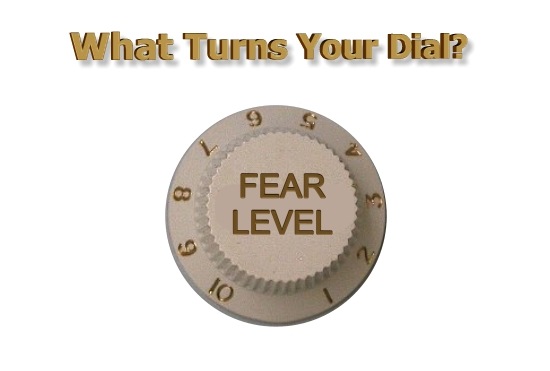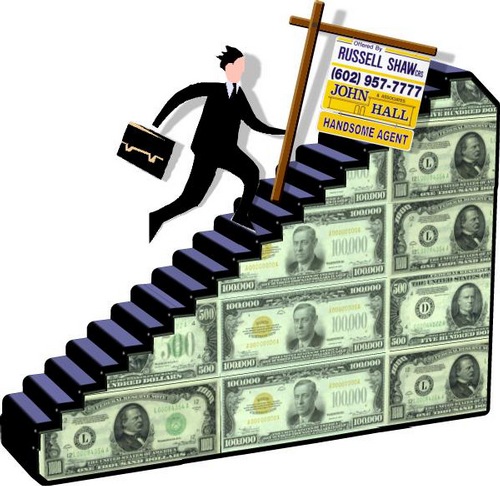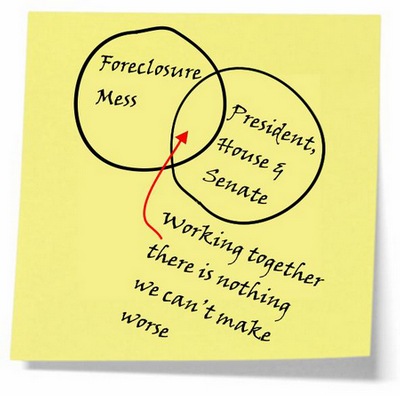
Achieving success is primarily a mental thing. One can observe the physical actions and results but sitting behind those actions and results are thoughts. "Correct" thoughts. The right kind of thinking leads to the right kind of actions. In any meaningful and desirable activity there is an infinity of incorrect ways to attempt to accomplish the intended result. There are but a few "correct" methods. Correct is being defined in this context to mean it works. That kind of thinking will produce the intended result. Usually, even in what could be classified as a purely "physical activity" the difference between achieving the result (winning) and not achieving it (losing) is mental. An example of this would be after Roger Bannister broke the 4 minute barrier for running a mile. Prior to him doing it everyone knew it could not be done. The fastest runners on earth knew they could not do it. Once Roger did it, it was then known it could be done. In the next three years 16 other runners also did it. It is doubtful the cause was Super Wheaties.
So, what are your "Four Minute Miles".
I will share with you something I discovered some years back that has made all the difference for me. Being able to spot "enemy line". To really grasp this concept imagine that an enemy has put you in a hypnotic trance and that all they need to do to ensure your failure is to get you to buy into certain ideas – the enemy line. If they can get you to embrace these ideas your failure is assured. Please understand that I am not suggesting that the failure ideas one carts around in their head came from an enemy hypnotizing them or even from an enemy at all. I found them most of mine were stupid ideas I dreamt up myself while tired, hungry or just not doing all that well due to some loss. So to get the full benefit of from this it is not necessary to find where the idea even came from – totally alright if you do, but not a vital step. All you are looking for is WHAT the idea is.
Take any goal you want to achieve. One that you want but isn’t very real to you. It seems too big. Distant. Do it later. Too hard to achieve. But you really would like it if it was possible, but it really doesn’t seem like it is truly possible. Any goal. As soon as you put your attention on that goal the various Enemy Line concepts you currently have get mentally activated to some degree. So to find them all you have to do is put your attention on the goals you want that you have not achieved. They will start to pop up, one by one.
Write them down. The beneficial result can not be accomplished if you don’t. Either write them on paper with a pen or pencil or write them in a Word document, but write them all down. Each and every one of them that you can think of, in writing. For me, it was a list I kept in my computer called, "Enemy Line List."
Having this negativity in writing is vital for a couple of reasons: writing these ideas out – in full – and labeling them as "enemy line" separates the ideas from you. And gives them the correct label – mental poison. Writing them out puts some distance between you and the ideas. The ones you have that you are already aware of as you read this are not likely the real "mooring lines" that are actually holding you back. Which is why the writing step can not be skipped. As you start to write them out you will think of others. I would sit and write them until I could not think of any others and then stop. Sometimes a few minutes after stopping, sometimes the next day as I was driving somewhere, I would think of more. I would make a note as to what those where and as soon as I could I would add them to the list in my computer. You will stumble upon some that will get you to sometimes wonder if you should laugh or cry. Maybe both. But getting these pieces of poison out of your head and correctly labeled makes it possible to recognize those ideas for what they really are the next time one of them comes drifting into your head.
Do not stop to worry about "what is realistic". If the idea is in conflict with your goals it belongs on the list. Period. Any idea, no matter how "practical" or "realistic" it may be – if that idea or concept is in conflict with your goals, put it on the list. This doesn’t have to ever be something you share with anybody. It can be, if you want it to be but don’t worry about embarrassment. Just write down any thought that is not in full alignment with your objectives.
I’ve shared this idea with many people over the years, and to my knowledge every one of them experienced relief. What follows is a real sample that a fellow Realtor sent to me (who wanted to be a lister). As I will never say his name, I will publish the list he sent me in full. These were his:
__
1. Listing agents don’t really add much value…they just put a sign in the yard and another agent comes along and sells the house.
2. Realtors are overpaid relative to the value they add.
3. Realtors aren’t really that smart; a lot of them are housewives just looking for something to do.
4. It is embarrassing to be affiliated with a profession that is so poorly regarded by the public.
5. Real estate is beneath a person with my level of education (according to wife).
6. Realtors are smarmy weasels and sleazy sales men.
7. I’m bothering people when I call them to prospect.
8. I’m no different than any other listing agent…we all basically do the same thing.
9. I don’t want any more listings because sellers are unrealistic about what price it will take to get the home sold and therefore the sellers are just annoying.
10. If price is all that really ultimately matters in getting the home sold why do you need an agent to go through all the (unnecessary, wasteful, expensive) motions of marketing the home – and why do you need an agent anyway, just price it to sell.
11. I don’t want any more listings because they are not selling in this market; working with buyers in a buyers’ market is a better strategy.
12. Sellers expect me to bring the buyer as the listing agent and that is simply not statistically likely.
13. Seller’s are unappreciative of what you do for them.
14. We can’t handle the workload of more listings than we have now.
15. Many agents are prospecting expireds and fsbo’s and we’re all using the same scripts and all sound the same to the sellers.
16. Seller’s can’t tell a dime’s worth of difference between realtors.
17. Full service brokerage is going the way of the dinosaur…commissions are too high and with the internet, all a seller needs is a discount broker and to get the listing online.












